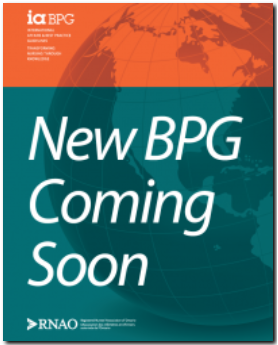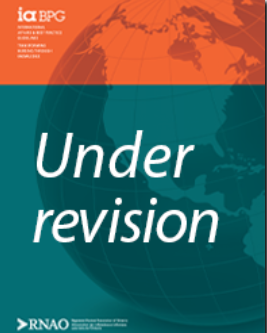Brand-new guidelines in development (working titles)
Addressing Anti-Black Racism in Nursing
This guideline will focus on creating evidence-based guidance to help eliminate anti-Black racism in nursing and improve belonging, well-being, and retention of Black nurses across all sectors. We expect to publish the guideline in Feb 2026.
Promoting Life and Prevention of Indigenous Youth Suicide
This guideline will focus on identifying best practices to promote life and wellness with Indigenous youth across communities. We expect to publish the guideline in 2026.


